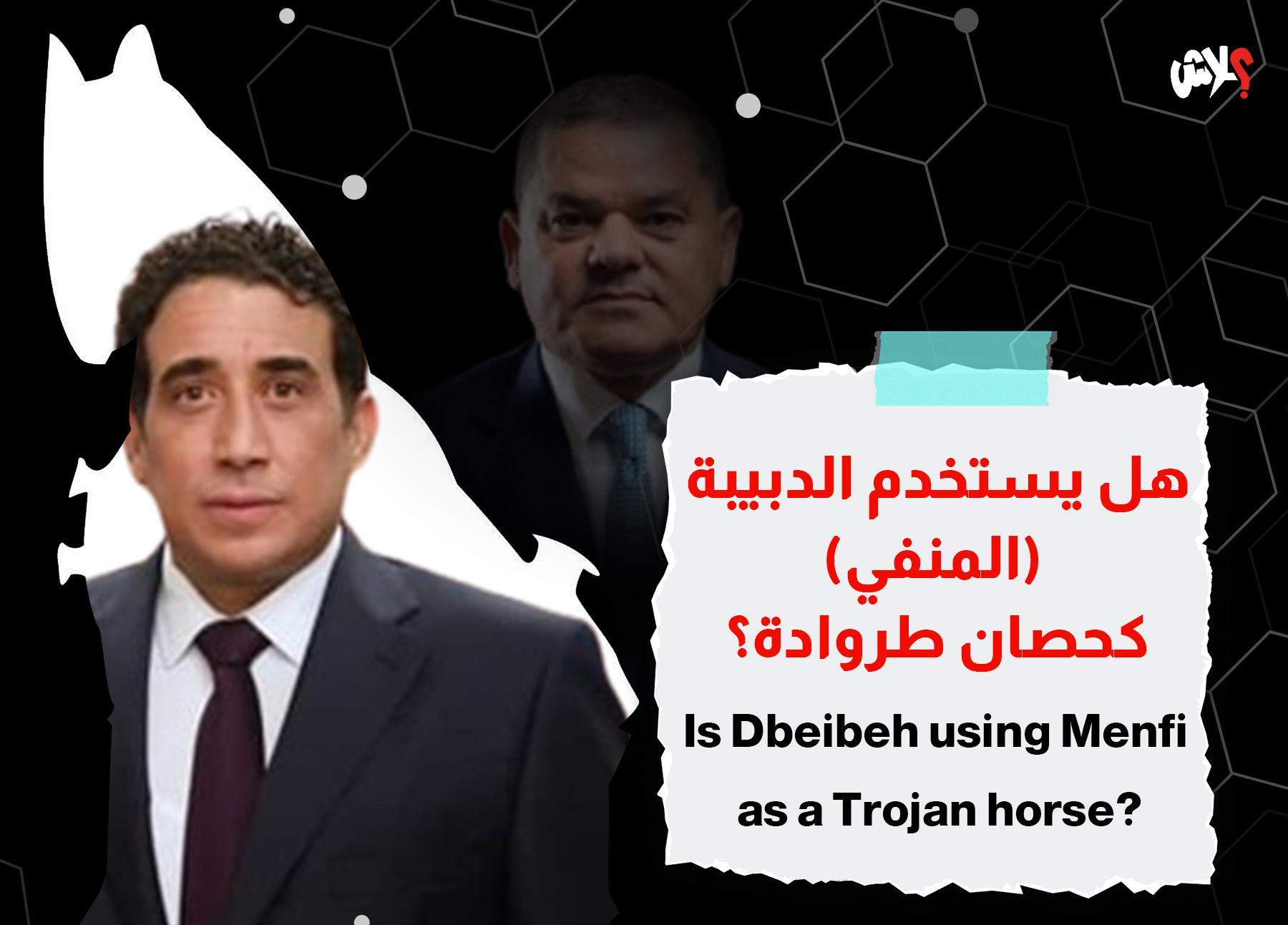Is Dbeibeh using Menfi as a Trojan horse?
Many Libyan citizens were surprised by the actions taken by the Head of the Presidential Council, Mohamed Al-Menfi, last week. This surprise is understandable, as Al-Menfi had not played any significant political role prior to these measures.
As we mentioned in our previous article titled "Who Whispered in Al-Menfi's Ear," it is likely that Dabaiba's camp convinced Al-Menfi that they are in the same boat and that their downfall would also mean his and the Presidential Council's downfall. This is evident from the actions taken by Al-Menfi, as he is undoubtedly aware that he does not have the authority to remove the Governor of the Central Bank of Libya, Sadiq Al-Kabir. This authority is exclusively vested in the House of Representatives and the High Council of State. Al-Menfi also knows very well that even when the House of Representatives attempted to take this action on its own, it was not accepted, and their sessions and decisions in this regard were rendered meaningless.
So, why did Al-Menfi take this step?
Many observers attribute this to the Dabaiba government’s realization that its end is near. This argument is further supported by its loss of the battle over the High Council of State, as the "Government of National Unity" is well aware that Al-Mishri's ascension to the presidency of the Council marks the resumption of talks with Aguila Saleh regarding the next government. Additionally, Al-Kabir's closure of the Central Bank of Libya and its funds to the Government of National Unity has exacerbated its crisis.
Proponents of this view argue that what has kept Dabaiba and his government in power for all these years is their ability to close off all avenues of opposition through the use of money. Many reports indicate that the bulk of the financial resources allocated to the "Government of National Unity" have been spent to consolidate its rule in western Libya, and it has been successful in doing so. Therefore, when the government was unable to mend its relationship with the Central Bank Governor, it decided to attempt to replace him—or so it thought.
On the other hand, there are those who believe that the leaks from the UN mission, which suggest that the "new Stephanie" is seeking to establish a dialogue committee consisting of the President of the High Council of State, the Speaker of the House of Representatives, two members of the 5+5 Joint Military Commission, one representing General Haftar and his family, and another representing the armed formations in western Libya, prompted Dabaiba to try to seize control of the Central Bank building. By doing so, he might create a new dynamic that could make him a party to this upcoming meeting, which is expected to form a new unified government in the country.
It is well known that the governor's position is not tied to the Central Bank building, and in a stable state, the process of replacing the governor under normal circumstances would take weeks to complete the procedures and confirm the signature of the new governor. This is even more so in a country torn between two competing families in the east and west, with one of them attempting to enter the Central Bank, which represents a state floating on a sea of oil, by forcibly "breaking down its doors."
The foreign interference in every aspect of Libya's affairs will not be absent from what is happening. Central Bank Governor Sadiq Al-Kabir is well aware of this, which is why he has been addressing official bodies in Libya, such as the Attorney General and the Minister of Interior, regarding what is happening at the Central Bank building. He also maintains his communication with international parties involved in Libyan affairs. This is supported by the correspondences received by the Libyan Foreign Bank from concerned international parties, expressing their fear of the consequences of the situation at the Central Bank and indicating that they might be forced to halt dealings with Libya until this crisis is resolved.
Through Al-Menfi, the Government of National Unity is telling all Libyans that it is willing to starve them to ensure that funds continue to flow into its coffers, showing complete disregard for the impact of its actions on the lives of Libyan citizens. On the other hand, the Central Bank Governor is signaling that he is prepared to shut everything down to maintain his position. Meanwhile, in another part of the divided nation, the Haftar family, through their Prime Minister Osama Hamad, has announced that they have begun procedures to shut down the oil fields, completing the circle of misery for the Libyan people. This puts us in a catastrophic economic situation, one even worse than the dire conditions of 2014.
Some say, "There is no solution but war," but we continue to argue that the missing element in the Libyan equation is the people, the rightful owners of the wealth and institutions over which these factions are fighting. And let me tell you, my dear friend and reader, that sooner or later, you will take to the streets. If you do so now, you will be an angry citizen, but if you wait until the disaster is complete, you will be an angry and hungry citizen. To better understand, ask history about the outcomes of citizens who take to the streets with these traits...

